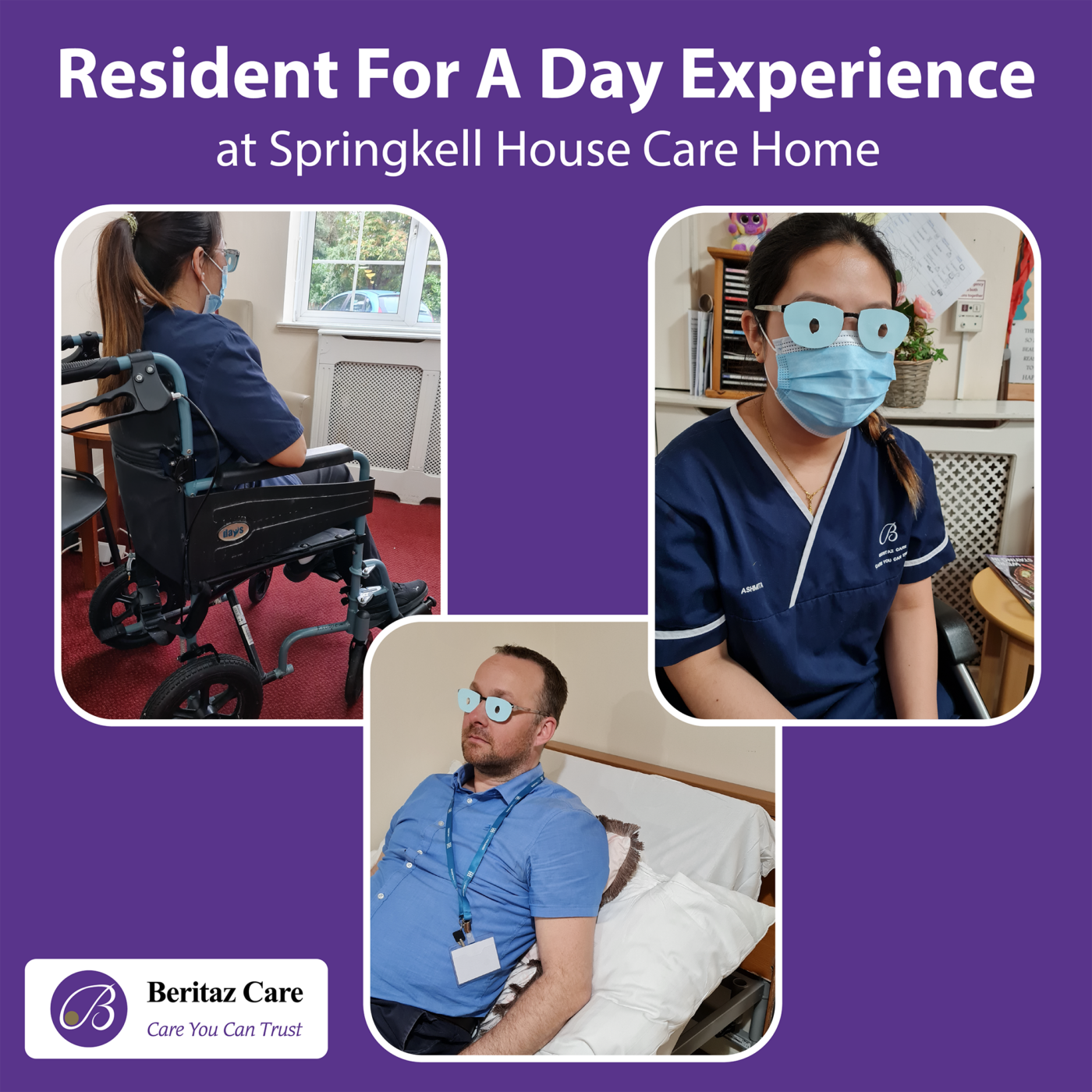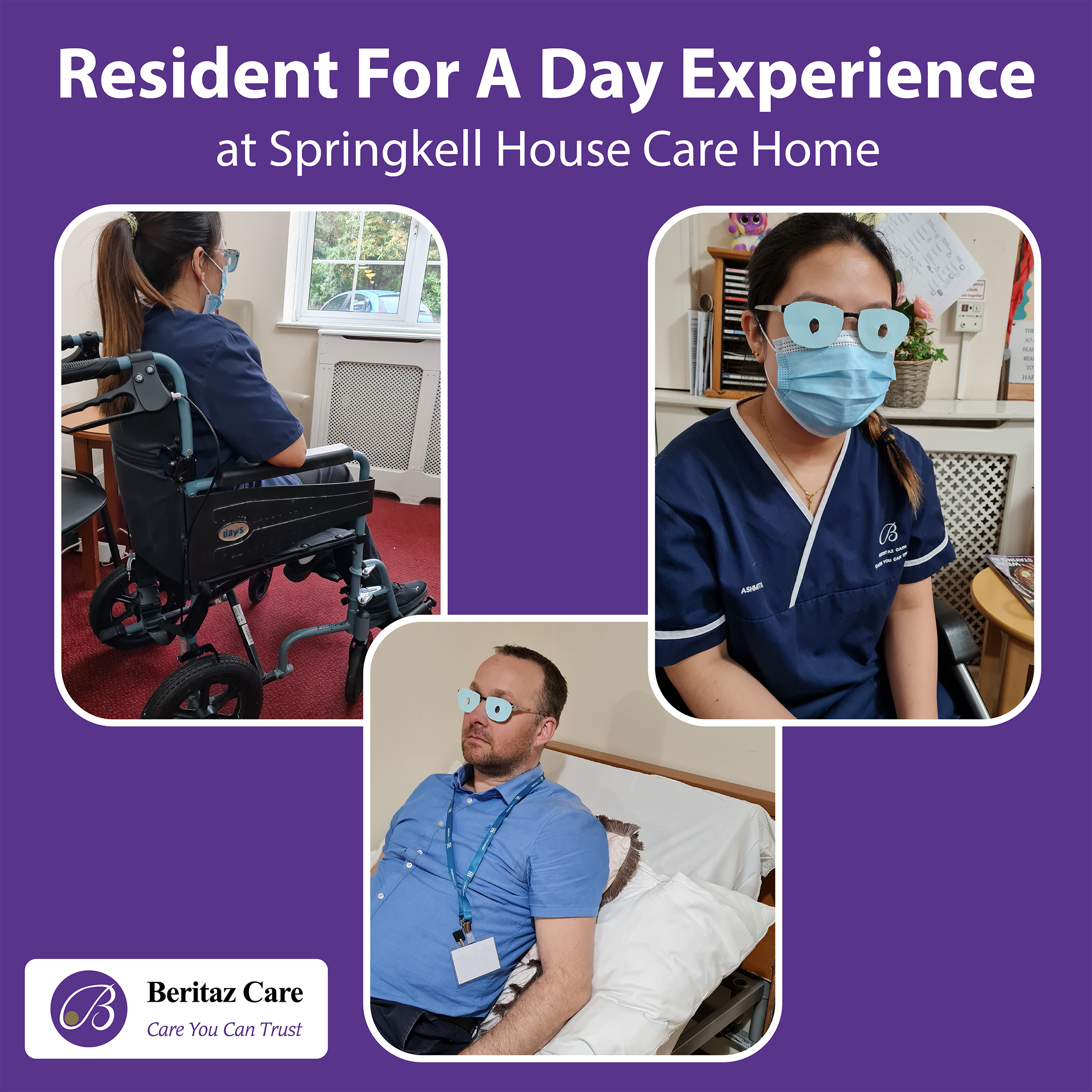
Recently the team at Springkell House have been taking part in our “resident for a day” experience. This is a training exercise where the staff member lives the life of a resident at Springkell House for the day, taking part in activities, meals and other daily routine tasks, exactly as our residents do.
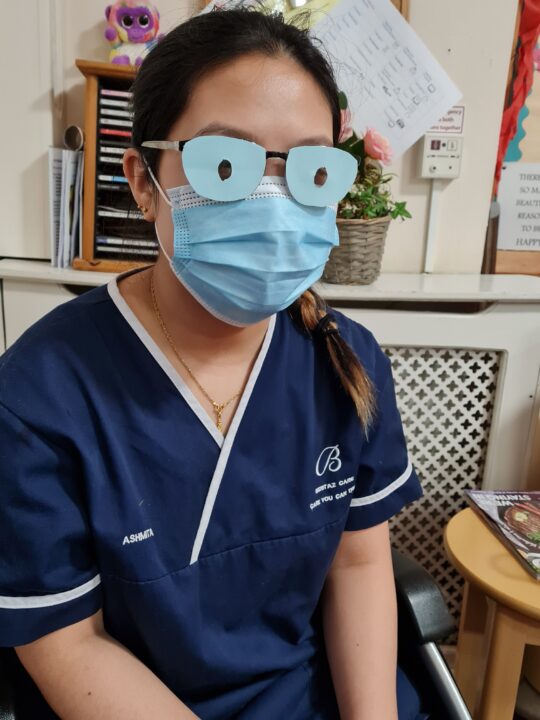 Using the knowledge we have about our residents and their health conditions, we created various scenarios for our staff to simulate, designed to give an insight into the different needs of our residents. Each morning, the staff member taking part was given their individual instructions for their resident experience. They were given details of a scenario of specific needs to simulate, such as dementia, issues with speech and communication, hearing or sight impairment, mobility issues or being bed bound. Everyone taking part was encouraged to fully embrace the experience, sticking to the scenario and acting completely as if they were a resident, including eating their lunch in the dining room with the other residents.
Using the knowledge we have about our residents and their health conditions, we created various scenarios for our staff to simulate, designed to give an insight into the different needs of our residents. Each morning, the staff member taking part was given their individual instructions for their resident experience. They were given details of a scenario of specific needs to simulate, such as dementia, issues with speech and communication, hearing or sight impairment, mobility issues or being bed bound. Everyone taking part was encouraged to fully embrace the experience, sticking to the scenario and acting completely as if they were a resident, including eating their lunch in the dining room with the other residents.
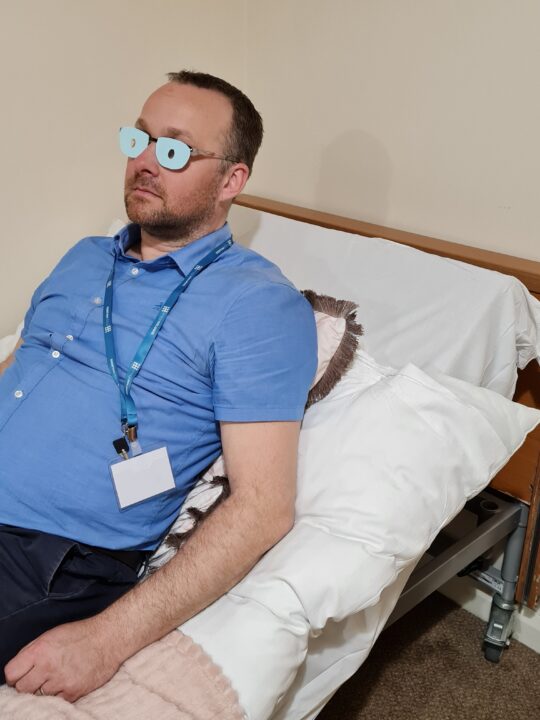 During the experience, the rest of the team were told to treat this staff member as if they were a resident at all times. The team would help them in and out of bed, assist with their meals, take them to the toilet and support them with their day-to-day needs, exactly as with any other resident. The staff member taking on the role of a resident had to rely on the team for assistance, so if they were simulating mobility issues and using a wheelchair, they had to wait for help from staff and not move from the wheelchair, just as a resident in that situation would have to do.
During the experience, the rest of the team were told to treat this staff member as if they were a resident at all times. The team would help them in and out of bed, assist with their meals, take them to the toilet and support them with their day-to-day needs, exactly as with any other resident. The staff member taking on the role of a resident had to rely on the team for assistance, so if they were simulating mobility issues and using a wheelchair, they had to wait for help from staff and not move from the wheelchair, just as a resident in that situation would have to do.
All of our staff took part in this exercise including our domestic, activities and kitchen teams, with only one member of staff taking part at a time so as not to put additional strain on the rest of the team. After taking part in the training each staff member received a certificate to mark their completion.
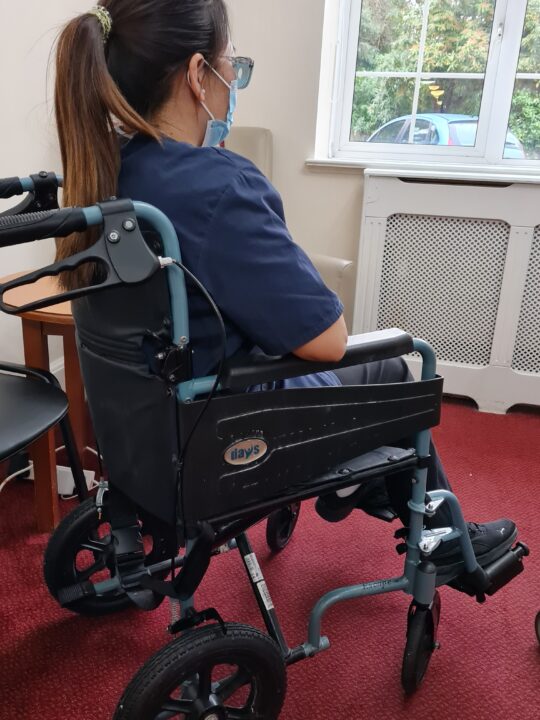 This was a valuable training exercise for all of our staff, to be in the shoes of the resident gave them a better understanding of their struggles and needs. The staff taking part commented on how difficult certain aspects of the experience were, particularly those having to wait in a wheelchair for assistance or being left alone in the bedroom, for those that were bedbound. For many of our staff this was a very emotional experience and really helped them to view their roles within the home from a new perspective.
This was a valuable training exercise for all of our staff, to be in the shoes of the resident gave them a better understanding of their struggles and needs. The staff taking part commented on how difficult certain aspects of the experience were, particularly those having to wait in a wheelchair for assistance or being left alone in the bedroom, for those that were bedbound. For many of our staff this was a very emotional experience and really helped them to view their roles within the home from a new perspective.
The staff were also asked to provide feedback on the support they received by the staff caring for them. This is a fantastic way for us to identify any areas of improvement and take on the suggestions of staff from this unique perspective. This experience taught our staff to be more mindful and understanding of the individual needs of our residents. It also inspired them to show greater patience and make extra time in their day to interact with the residents, as they better understood how lonely the residents could feel without that interaction.
Some thoughts from our after their experience of being a resident for a day;
“It is terrible to be dependent on someone else if you are immobile.” – MM
“I felt lonely and in time spend alone in the room was thinking about my life and missed my family.” – DT
“I felt hopeless.” – JT (who experienced life as a blind resident)
“The staff were supportive and kind.” – RL
“I was given choices, my colleagues looked after me well.” – FT
“After the experience I had, I realised I need to change my communication skills toward our residents.” – AM
“As a result of this experience I will be very careful about residents’ glasses or hearing aids.” – BP

